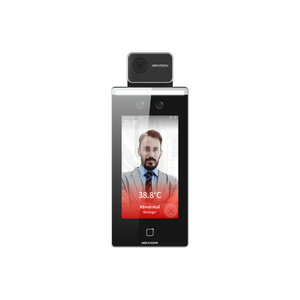
A Door Access System (DAS) is an integral component of building security, allowing authorized entry through secure authentication methods. In Singapore, where security concerns are paramount, these systems have seen significant adoption across residential, commercial, and industrial sectors. This article explores the operational aspects, benefits, and market trends of door access systems in Singapore.
Table of Contents
ToggleUnderstanding Door Access Systems
Door access systems control entry to a building or specific areas within it through various authentication methods like keypads, card readers, biometric scanners, and more recently, mobile access via smartphones. These systems can also integrate with other security measures, such as CCTV cameras and alarm systems, to provide a comprehensive security solution.
Types of Door Access Systems in Singapore
- Keypad Access Systems: These systems require a numeric code for entry, making them a cost-effective and simple solution. However, they lack the higher security levels of biometric systems as codes can be shared or guessed.
- Card Access Systems: Utilizing magnetic stripe or RFID technology, these systems provide secure access and can easily be deactivated if a card is lost or stolen. They are widely used in office buildings and hotels.
- Biometric Access Systems: These systems use unique physical characteristics such as fingerprints, facial recognition, or iris scans for authentication. They are highly secure and are increasingly popular in high-security areas.
- Mobile Access Systems: With the rise of smart technology, mobile access systems allow users to unlock doors with their smartphones, which act as their access credential through apps or Bluetooth technology.
Market Penetration and Trends
Singapore’s market for door access systems is driven by its robust construction sector, heightened security needs, and technological advancements. The rise in smart homes and smart buildings has particularly spurred the adoption of sophisticated DAS technologies. According to industry reports, the Asia-Pacific region is experiencing significant growth in the security systems sector, with Singapore being a key market due to its technological readiness and infrastructure development.
Regulatory and Compliance Aspects
In Singapore, the installation and operation of door access systems must comply with standards set by the Security Industry Regulatory Department (SIRD) and the Building and Construction Authority (BCA). These regulations ensure that systems are reliable, secure, and capable of integrating with other safety measures as required in public and private buildings.
Benefits of Door Access Systems in Singapore
Enhanced Security
Door access systems significantly enhance building security by ensuring that only authorized personnel can enter specific premises. This controlled access is crucial in preventing unauthorized entry, which can lead to theft, vandalism, or even corporate espionage. In settings such as research labs, government buildings, and data centers in Singapore, where security is of paramount importance, these systems are essential. Additionally, in the event of a security breach, the system can quickly identify the time and point of entry, aiding in swift response and resolution.
Convenience
Door access systems offer unmatched convenience, particularly in high-traffic areas such as commercial complexes, educational campuses, and large residential blocks. They streamline the entry process by replacing traditional keys with more efficient mechanisms like cards, keypads, or biometric verification, which are quicker and can handle a large flow of people without creating bottlenecks. This ease of access not only improves user satisfaction but also enhances the flow of traffic into and out of a building, making it more efficient during peak times.
Cost-Effective
The implementation of door access systems can lead to significant cost savings over time. By eliminating the need for traditional metal keys, which can be lost or copied, these systems reduce the recurring expenses of key replacements and lock changes that are often necessary in large organizations. Additionally, the ability to remotely manage and configure these systems can decrease the need for physical security patrols and onsite security staff, further reducing operational costs.
Data Collection
Modern door access systems are equipped with sophisticated data logging features that record every entry and exit, complete with timestamps and user identification. This data is invaluable for security audits, where it helps identify patterns that could indicate potential security threats or breaches. Furthermore, in a business context, this data can be used for personnel management, such as monitoring attendance, managing access rights, and even integrating with payroll systems to ensure accurate work hours tracking. This level of detail helps organizations in Singapore maintain high security and operational efficiency, making these systems an essential component of modern business infrastructure.
Challenges and Considerations
While door access systems offer numerous benefits, they also come with challenges such as the need for regular maintenance, vulnerability to hacking, and the potential for privacy concerns, particularly with biometric systems. Users must choose systems that balance security needs with privacy rights, and that comply with Singapore’s Personal Data Protection Act (PDPA).
Conclusion
Door access systems in Singapore represent a critical component of the broader security framework that protects people, assets, and data. As technology evolves, these systems are becoming more integrated and capable of providing insights into access patterns and security breaches, making them an indispensable tool in the security management arsenal. With ongoing advancements and regulatory support, Singapore’s market for door access systems is set to grow, reflecting its status as a safe, smart, and secure nation.
Author

Jason is an expert in CCTV, door access, solar panels, and video intercom systems, with over 10 years of experience in the security industry. He graduated with a Mechanical Engineering degree. Jason offers tailored solutions and exceptional customer service, committed to ensuring the safety and security of clients' businesses and homes. When he's not working on security projects, he enjoys relaxing in his apartment, watching Netflix.
